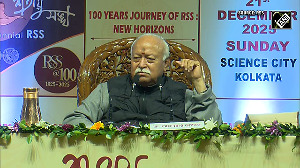While 800 internally displaced people returned to the Swat valley on Tuesday, another 5,200 people were scheduled to return home on Wednesday, the UN spokesman, Michele Montas told mediapersons at the UN headquarters in New York.
"Yesterday's returnees left Jalozai camp, which is managed by the Office of the United Nations High Commissioner for Refugees, together with its partners and provincial authorities, in 20 buses and trucks to go back to Swat," she said.
Returnees told UNHCR that they felt safe going back to their villages after contacting neighbours who had already safely returned on their own.
"Returnees mentioned the unbearable heat in the camp as one of their main reasons they registered to go back. They said many of their children fell sick and contracted skin diseases because of the heat," she said.
Other internally displaced people reported they were not yet ready to return, citing security concerns in various areas of Swat, Montas said.
Over 2 million people have been displaced since early May. While 2,60,000 people are staying in 21 camps, the vast majority of the displaced are accommodated with host families, rent houses or are in school buildings.
The World Health Organization (WHO), which just
completed a high-level mission to Pakistan on Friday, said one of its major concerns is ensuring that returnees have access to functional health systems.
The agency's spokesperson, Paul Garwood, also cited a major gap in female health workers available to treat patients, particularly female returnees who prefer to be treated by women.
The scale of the displacement crisis continues to "exhaust the current health system's ability to meet all needs," he told mediapersons.
The situation is being further complicated by the coming monsoon season, which will result in higher risks to displaced women and children under five, especially with regard to respiratory infections, malaria, and other water-borne diseases.
Government authorities and UN agencies, including UNHCR, signed a statement over the weekend pledging that the return process would follow the principles of voluntariness, safety and dignity.
UNHCR will help to monitor the willingness of people to return as well to implement the registration process. It will also provide assistance in cash to the government for the transportation of vulnerable people, and distribute relief items to families which have not yet received them, especially for IDPs staying in host families and school buildings.





